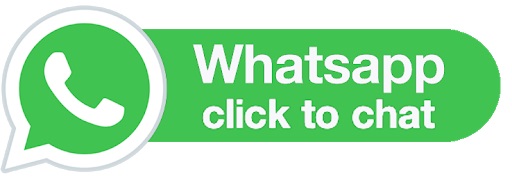Language Learning Technologies to Support Indonesian EFL Students' Writing Skills: A Literature Review
DOI:
https://doi.org/10.29303/kopula.v7i1.6182Keywords:
TALL learning, EFL Education, writing skillsAbstract
The utilization of technology in educational settings, particularly in the context of English as a Foreign Language (EFL) instruction, exerts a substantial influence on students' writing abilities. This research study undertakes a comprehensive analysis of the impact of Technology Assisted Language Learning (TALL) on the writing proficiency of EFL students in Indonesia. The study is informed by a systematic review of diverse studies conducted over the past decade. The primary focus of this analysis is to examine how technological tools enhance students' writing abilities. The findings indicate that TALL enhances writing proficiency through interactive learning, prompt feedback, and collaborative activities. However, the study also identifies challenges, including a lack of teacher preparation and limited access to technology. The study's conclusion emphasizes that while TALL offers numerous benefits, addressing these issues is crucial to maximize its efficacy. Recommendations for optimizing TALL include increased investment in technology infrastructure, professional development for educators, and integration of TALL in the curriculum.
References
Ahmad, M. (2019).Criteria for Selecting Studies in Technology-Enhanced Language Learning Research.Journal of Applied Linguistics, 12(3), 45-62.
An, Z., Wang, C., Li, S., Gan, Z., & Li, H. (2021). Technology-Assisted Self-Regulated English Language Learning: Associations With English Language Self-Efficacy, English Enjoyment, and Learning Outcomes. Frontiers in Psychology, 11, 558466.https://doi.org/10.3389/FPSYG.2020.558466/BIBTEX
Chen, L. (2022). Evaluating the Quality of Research in Educational Technology.Computers & Education, 176, 104358.
Huang, C. (2022). Self-Regulation of Learning and EFL Learners’ Hope and Joy: A Review of Literature. Frontiers in Psychology, 13, 833279. https://doi.org/10.3389/FPSYG.2022.833279/BIBTEX
Kohnke, L., &Moorhouse, B.L.(2020).‘There’s an app for that!’ Writing Technology reviews for academic journals. RELC Journal, 51(1), 1-5. https://doi.org/0033688220945419.
Kukulska-Hulme, A., &Viberg, O. (2018). Mobile collaborative language learning: State of the art. British Journal of Educational Technology, 49(2), 207–218. doi:10.1111
Le, T. T. M. (2021).A Case Study of Students’ Views on Effective Online Learning.AsiaCALL Online Journal, 12(5), 24-33. Retrieved from https://asiacall.info/acoj/index.php/journal/article/view/73
Le, M. T. (2021). Students’ Attitude Towards Using Smartphones and Portable Devices for Studying Writing. International Journal of TESOL & Education, 1(3), pp. 54-64. EOI: http://eoi.citefactor.org/10.11250/ijte.01.03.004
Ly, T. N. L., Nguyen, T. L., & Nguyen, H. N. (2021).Using E-Learning Platforms in Online Classes: A Survey on Tertiary English Teachers' Perceptions.AsiaCALL Online Journal, 12(5), 34-53. EOI: http://eoi.citefactor.org/10.11251/acoj.12.05.004
Mali, Y. C. G., &Timotius, A. I. (2018). Project based activities in a call classroom: EFL students’ experiences. International Journal of Education, 11(1), 6-17. https://doi.org/10.17509/ije.v11i1.10177
Moses, R. N., &Mohamad, M. (2019). Challenges faced by students and teachers on writing skills in ESL contexts: A Literature Review. Creative Education, 10(13), 3385-3391. https://doi.org/10.4236/ce.2019.1013260
Nazari, M., Xodabande, I., 2020. L2 Teachers’ mobile-related Beliefs and Practices: Contributions of a Professional Development Initiative. Computer Assisted Language Learning, pp. 1–30.
Ndoricimpa, C., &Barad, D. P. (2021). Does online instruction in discourse conventions of literary analysis affect L2 students’ critical stance in academic writing? A longitudinal study: A longitudinal study. AsiaCALL Online Journal, 12(4), 66 - 87. Retrieved from https://asiacall.info/acoj/index.php/journal/article/view/66
Salih, A., &Holi, H. I. (2018). English Language and the Changing Linguistic Landscape: New Trends in ELT Classrooms. Arab World English Journal, 9(1), 97–107. https://doi.org/10.24093/awej/vol9no1.7
Shadiev, R., Hwang, W. -Y., and Ghinea, G. (2022a). Guest editorial: Creative learning in authentic contexts with advanced educational technologies. Educ.Technol. Soc. 25, 76–79. Available online at: https://www.jstor.org/stable/48660125
Shadiev, R., Yi, S., Dang C. and Sintawati, W. (2022b). Facilitating students’ creativity, innovation and entrepreneurship in a telecollaborative project. Front. Psychol. 13, 887620. doi: 10.3389/fpsyg.2022.887620
Wang, J. (2021). Defining Inclusion and Exclusion Criteria in Systematic Reviews.Educational Research Review, 34, 100394.
Warschauer, M., & Ware, M. (2008). Learning, change, and power: Competing discourses of technology and literacy. In J. Coiro, M., Knobel, C. Lankshear, & D. J. Leu (Eds.) Handbook of research on new literacies (pp. 215-240). New York: Lawrence Erlbaum Associates.
Xiao, Y., & Watson, M.(2019).Guidance on conducting a systematic literature review. Journal of Planning Education and Research, 39(1), 93-112.https://doi.org/10.1177%2F0739456X17723971
Zhang, X. (2021). The Impact of EFL Students’ Emotioncy Level on Their Motivation and Academic Achievement: A Theoretical Conceptual Analysis. Frontiers in Psychology, 12, 798564. https://doi.org/10.3389/FPSYG.2021.798564/BIBTEX
Zhang, R., &Zou, D. (2020).Types, purposes, and effectiveness of state-of-the-art technologiesfor second and foreign language learning. Computer Assisted Language
Learning, 1–47. doi:10.1080/09588221.2020.1744666
Zou, D., Xie, H.R., & Wang, F.L. (2018). Future trends and research issues of technology-enhanced language learning: A technological perspective. Knowledge Management& E-Learning, 10(4), 426–440.
Downloads
Published
Issue
Section
License
Copyright (c) 2025 Nurfadillah, Ivan Achmad Nurcholis

This work is licensed under a Creative Commons Attribution 4.0 International License.
Authors who publish with Kopula: Jurnal Pendidikan dan Bahasa, agree to the following terms:
- Authors retain copyright and grant the journal right of first publication with the work simultaneously licensed under a Creative Commons Attribution 4.0 International License (CC-BY License). This license allows authors to use all articles, data sets, graphics, and appendices in data mining applications, search engines, web sites, blogs, and other platforms by providing an appropriate reference. The journal allows the author(s) to hold the copyright without restrictions and will retain publishing rights without restrictions.
- Authors are able to enter into separate, additional contractual arrangements for the non-exclusive distribution of the journal's published version of the work (e.g., post it to an institutional repository or publish it in a book), with an acknowledgment of its initial publication in Kopula: Jurnal Pendidikan dan Bahasa.
- Authors are permitted and encouraged to post their work online (e.g., in institutional repositories or on their website) prior to and during the submission process, as it can lead to productive exchanges, as well as earlier and greater citation of published work (See The Effect of Open Access).










